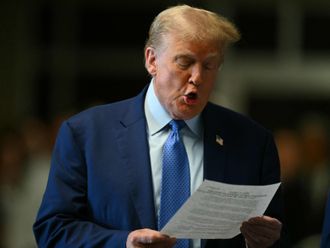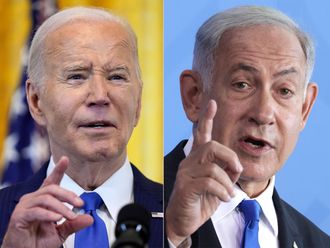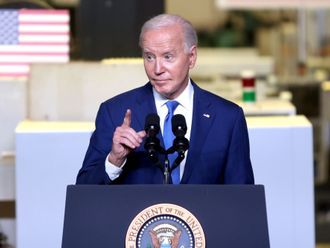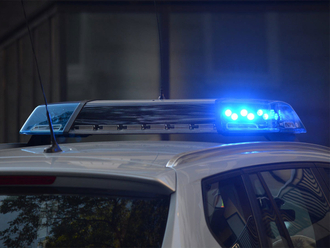Guatemala City: Guatemala has deployed 3,000 troops to its disputed border with Belize following a shooting incident that killed a Guatemalan teen, Defence Minister Williams Mansilla said Friday.
“It is a preventive measure, it is not a declaration of war,” Mansilla said by telephone from northern Guatemala, where he was overseeing the deployment.
The United States expressed concerns over the sudden spike in tensions between the two Central American nations.
The State Department issued a statement to “urge calm and restraint by both sides.”
Guatemala has made claims over more than half of Belize’s territory dating back 150 years to when its small neighbour was a British colony known as British Honduras.
Tensions between the two have long been simmering despite agreement to try to resolve the territorial dispute in the International Court of Justice (ICJ) following separate referendums.
They ratcheted up dramatically on Wednesday, when a shooting incident occurred that each country said happened on its side of the border.
According to Guatemala, a Belize patrol shot and killed a 13-year-old Guatemalan boy walking home from field labour, and wounded his father and brother.
Belize rejected that version and said one of its patrols came under fire from Guatemalan civilians and responded in “justifiable self-defence.”
Each side accuses the other of a preceding series of other acts of violence, and fears are rising over the militarisation along the border.
The State Department said it was “deeply concerned” by the reports of the boy’s death. It expressed condolences to his family.
“We urge calm and restraint by both sides, and we call for a full investigation of the facts surrounding this tragedy,” the statement said.
Belize’s Prime Minister Dean Barrow, in a recorded audio message, said he met with Guatemalan President Jimmy Morales on the margin of a UN meeting in New York to complain that the Guatemalan measures “escalate tension to an utterly unacceptable degree.”
Barrow said both agreed “there is an immediate need to de-escalate tensions.”
He added that an “impartial” investigation into the shooting by the Organisation of American States (OAS) was being carried out.
Belize was also asking the US to send forensic experts to help recreate the circumstances of the shooting incident, he said.
Although Belize became independent in 1981, Guatemala did not recognise it for another decade because of its territorial claims, prompting Britain to keep a small military presence in its former colony as a deterrent until five years ago.
Guatemala and Belize have issued separate statements accusing the other of a number of violent acts against its forces or citizens in the border area in the past two decades.
The heightened border dispute is the first foreign policy challenge for Morales, a former TV comedian who became Guatemala’s leader in January after pulling off a surprise victory in an election to replace his predecessor felled by a corruption scandal.
In a recorded address to the nation Thursday, Morales accused Belize of “cowardice” over the killing, saying Guatemalan forces would assert “strict protection for the sovereignty” of the shared border river.
The OAS and Britain both voiced concern over the rising tensions and urged the two neighbours to leave the dispute in the ICJ’s hands.
Britain’s minister of state for Latin American affairs, Hugo Swire, appealed for “moderation” from both nations and said the ICJ was “the best path” to settle the dispute.












